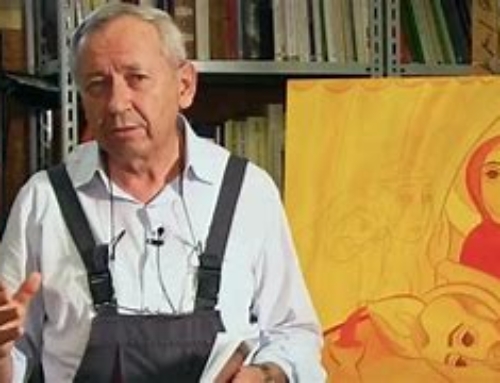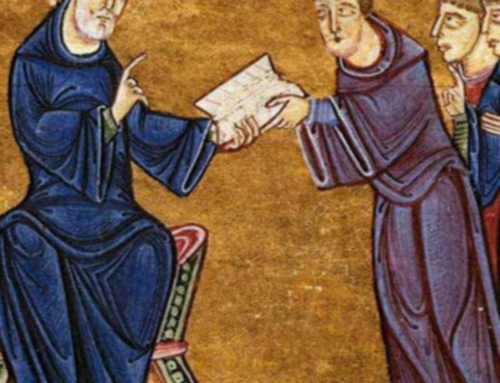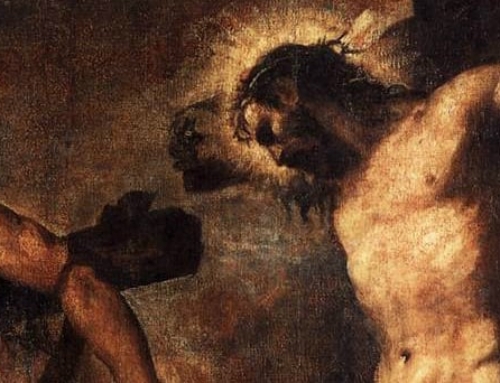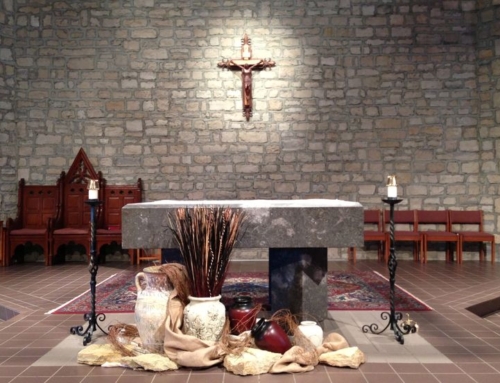The exploits of the Desert Fathers make for some motivating Lenten reading. They were known for their extravagant personalities and extreme austerities.
In the fourth century, Anthony of the Desert and his fellow hermits retreated into the wilderness to live in caves. They practiced vegetarianism, extreme fasting and mortification of the flesh. In Syria, the desert monks were even more extreme. St. Simeon Stylites first imprisoned himself in a tiny space, locked himself in a hut where he fasted for a year, remained standing for extended periods of time and finally took residence on a platform atop a pillar in the desert near Aleppo, where he lived for 37 years.
Is that what Christians are called to? Must we punish our bodies so that our souls will be saved? Not really. The desert monks of the fourth century were driven by a harsh negativity. In the next century, St. Benedict would draw back from the extreme asceticism of the Desert Fathers and stipulate that nothing in the monastic rule should be harsh or burdensome. The reason for Benedict’s gentler approach is not because he was a monastic sissy, but because he had a greater understanding of the relationship between the body and spirit than the first monks.
Hilaire Belloc famously said, “Every argument is a theological argument.” It is no coincidence that the heresy of Manicheanism was at its height in the fourth century in the Eastern part of the Roman Empire. Mani was a Persian prophet active in the third century. His teachings combined elements of Buddhism, Zoroastrianism and Jewish apocalyptic writings with the new religion of Christianity. The hallmark of Manicheanism is dualism — the belief that there are two equal forces of good and evil: The evil force is tied in with the physical world, while the good force is purely spiritual.
With a heresy like that going around, no wonder the Desert Fathers in Egypt and the Stylites in Syria thought they had to mortify the flesh in order to rise up into an angelic state of pure spirituality.
St. Benedict’s gentler rule was a theological correction to Manicheanism. While Benedict taught that the monks should have no personal property, he did not eschew ownership or the proper delight of the created world. Christian orthodoxy teaches that created things are good. God doesn’t make trash. The physical world is lovely and wonderful. It is to be celebrated and enjoyed.
However, because of our innate selfishness, we become attached to the physical world in the wrong way. Our love for physical things has become distorted, misplaced, exaggerated and even idolatrous.
This explains why we fast at Lent. We do not fast because we believe food and other physical pleasures are wrong. We fast so that we might correct our distorted and destructive attachment to physical things. We fast to order our desires, not to obliterate them. We fast so that we might learn the true meaning of detachment.
In Eastern religions like Buddhism, “detachment” means being cut off, like Manichean monks, from all things physical. In Eastern thought, detachment means rising above the physical realm through asceticism to become completely spiritual. Christian detachment is something much more subtle and beautiful.
The English mystical poet Thomas Traherne wrote, “Can a man be just unless he love all things according to their worth?”
Asceticism is the method through which we learn to love all things according to their worth. If we are overly attached to food, for example, fasting helps us to keep that disordered attachment in check. If we have become too attached to our material wealth, almsgiving helps us to be released from that distorted attachment. If we are too selfish with our time and self-centered, working with the poor and needy corrects our distorted attachment to ourselves. The process, therefore, is one of correcting our disordered attachments so that we might love all things according to their true worth.
During Lent, we combine this asceticism with prayer because through prayer we attach ourselves to the one thing that is worthy of our complete, wholehearted and total attachment: God himself. Through prayer, we join our will with his. Through prayer, if you like, we attach ourselves to him, and he attaches himself to us through the infilling of the Holy Spirit.
The Gospel puts it this way, “Seek first the kingdom of God, and everything else will be added to you” (Matthew 6:33).
When we come to realize the reason for our Lenten sacrifices and prayers, suddenly the season of Lent becomes a joy and not a chore. This is the season during the year when we order our desires. This is when we seek first the kingdom of God. We get things lined up the right way. We discipline our appetites. We correct the orientation of our hearts, and through prayer, we put God first.
After that, everything else falls into place with a delightful and peaceful harmony.







The ascetics of differing ages have adopted practices suited to their time. In Saint Simeon’s day a problem was that he was often besieged with visitors. This is a problem that occurs even today when people visit monastics expecting them to be Eastern-style gurus. This is very distracting and spiritually dangerous for both the monastic and the visitor. Saint Simeon took to his pillar initially not as a weird act of asceticism but to escape the crowds which constantly harassed him. He was tested by his brother monks and elders for prelest, pride and vainglory. When given an obedience to come down from the pillar Saint Simeon calmly and humbly obeyed. We need to pay more attention to both the Desert Fathers and Desert Mothers (yes there were both) not less. Saint Benedict came up with a different rule which has stood the test of time, and yet he is closer to the spirituality of the ancient desert ascetics than to the countless (and sadly regrettable) innovations of some Western monastics who came after the ravages of nominalism and the cartesian rationalism of the later scholastics. It is from that font that the bitter waters of secularism have grown into the flood which threatens to drown us today. A flood which leaves many Christians wondering if we might need to seek our own pillars. Well, all of this aside, I just think it is worth remembering that we do call him Saint Simeon and he is venerated East and West.